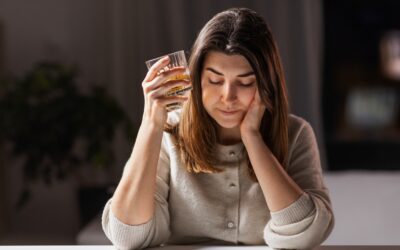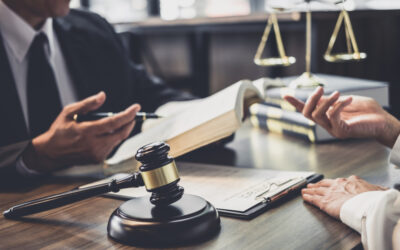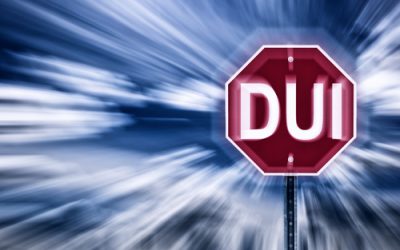“Drinking after driving” represents a valid defense for driving under the influence (DUI) charges because you should only face an arrest for drunk driving if you consumed alcohol before getting behind the wheel.
If you stopped driving, had a beer, and the police found you at that point, you could avoid a DUI conviction. A Los Angeles DUI lawyer can help you review this legal defense for driving under the influence of alcohol.
What Is the “Drinking After Driving” Defense?
“Drinking after driving” states that you were sober, or within the legal limit, at the time you were driving. Only later, after you stopped the car, did you begin to drink. Thus, you may have been intoxicated when officers found you, but you were not intoxicated when you were driving.
This defense relies on two crucial facts:
You Only Get a DUI for Driving While Under the Influence of Alcohol
California Vehicle Code (CVC) 23152(b) only criminalizes being impaired while driving. This legal code does not penalize you for drinking in your home, in a parked car, or even on the side of the road. Drinking after you stop your vehicle is not a DUI.
Officers Cannot Tell When You Started Drinking
If the police get an accident call and arrive 15 minutes later, and they find you drinking or drunk, they will naturally assume a DUI. But that may not be true. Police officers have no way of knowing whether you were intoxicated to start with or if you started drinking after the accident.
To successfully convict you of a DUI, the prosecution needs to prove you were drunk at the time of driving. This defense can help you fight against your charges if they can’t confirm this.
Find out if “drinking after driving” is a valid DUI defense in your circumstances with help from a lawyer.
How Strong Is the “Drinking After Driving” Defense?
Whether the “drinking after driving” defense works depends almost entirely on the evidence your lawyer can provide. In general, if you were found drunk shortly after a traffic incident, police (and prosecutors) will assume you were driving under the influence.
To claim otherwise, you need evidence. Examples of evidence include:
- Your breath test or blood test shows a low blood alcohol concentration, consistent with starting drinking only recently
- Witnesses saw when you started drinking or saw that you were not intoxicated when you first got out of the car (for this, you will need witnesses who don’t know you)
- You have receipts showing when you purchased the alcohol
- The alcohol flask or bottle you were drinking from is nearly full, suggesting you hadn’t been drinking for long
It also helps if you have a consistent story about your drinking from the first time the police talked to you. If you said immediately, “No, I only started drinking when…” then your story is more credible than if you initially denied drinking and later changed your story.
So, is “drinking after driving” a valid DUI defense? This defense can work in some situations. You can get legal advice about the defenses that work for your criminal charges from a defense lawyer.
Can a Lawyer Help with the “Drinking After Driving” Defense?
Generally, it’s wise to retain a lawyer regardless of whether you use the “drinking after driving” defense. There are certain cases where drinking after driving is the best defense to use, and there are cases where it isn’t.
The only proper way to tell is by consulting with an experienced lawyer first. A criminal defense attorney can help you with your drinking and driving defense by:
- Gathering critical evidence pertinent to your innocence.
- Consult with experts and witnesses to get supporting testimony in your defense.
- Request additional testing, police records, medical records, etc.
- Represent you and your best interests in court.
- Assess any plea deals offered to you to ensure you get a fair deal.
There’s no need to go about your DUI defense alone. If you don’t have any strong background in California law, representing yourself puts you at an extreme disadvantage. So, don’t risk facing severe penalties for DUI; hire a lawyer as soon as possible.
A criminal defense lawyer will help you determine if “drinking after driving” is a valid DUI defense for your circumstances.
Can You Use the “Drinking After Driving” Defense for a Drug-Related DUI?
An attorney may use a similar defense if you face charges for driving a motor vehicle while under the influence of drugs.
The same principle applies to DUI charges involving marijuana, painkillers, or any drug, regardless of whether it’s legal or illegal. If you can cast doubt on whether you were on the drug while driving, you may have a strong defense.
However, the tradeoff with “drugs after driving” is that you have to admit to using drugs to use this defense. If it were an illegal drug like cocaine, you would likely face some drug charge even if you beat your DUI.
Will You Get in Trouble for Admitting You Were Drinking?
You may face different criminal charges if you admit that you were drinking in your motor vehicle, even after you stopped driving. For example, you could face an open container violation under CVC § 23222 if you had an open flask of whiskey in your vehicle while driving.
You could also face charges for public intoxication for drinking along the roadside. The same principle applies to underage drinkers. A driver under 21 will get in serious trouble if they admit they were drinking after an accident or traffic incident.
The penalties for underage DUI are even more severe. Ensure you get legal advice about this defense before attempting to use it.
An Attorney Can Help You Avoid Harsh DUI Penalties
The intensity of DUI penalties scales with how many times you got convicted of a DUI. So, the more DUIs you have on your record, the worse the penalties become. Getting charged with a DUI can negatively impact your life in many ways, including:
- Potentially getting rejected for higher education, the military, or a job
- Higher insurance premiums
- Restricted license
- Jail time
- Fines
- DUI charge on your permanent record
The harsh penalties you can face due to a DUI are the main reasons why you should use valid defenses, such as drinking after driving, to help establish your innocence. Above all, it’s better to avoid these penalties than have to deal with them down the road.
A lawyer may also consider the rising blood alcohol defense in a California DUI case. Your attorney may also argue that the police stopped you without reasonable cause or that law enforcement officers improperly administered blood alcohol content (BAC) tests.
You can discuss all potential options to handle charges that you drove over the legal limit by contacting a criminal defense attorney to discuss viable defenses for your situation.
Find Out if “Drinking After Driving” Is a Valid DUI Defense
Is “drinking after driving” a valid DUI defense? In some cases, a lawyer can successfully argue that you should not face a DUI conviction because you were not drunk at the time of driving. You can discuss this option in more detail with a criminal defense law firm.
Find out more about your options after an arrest by calling or completing our online contact form.






